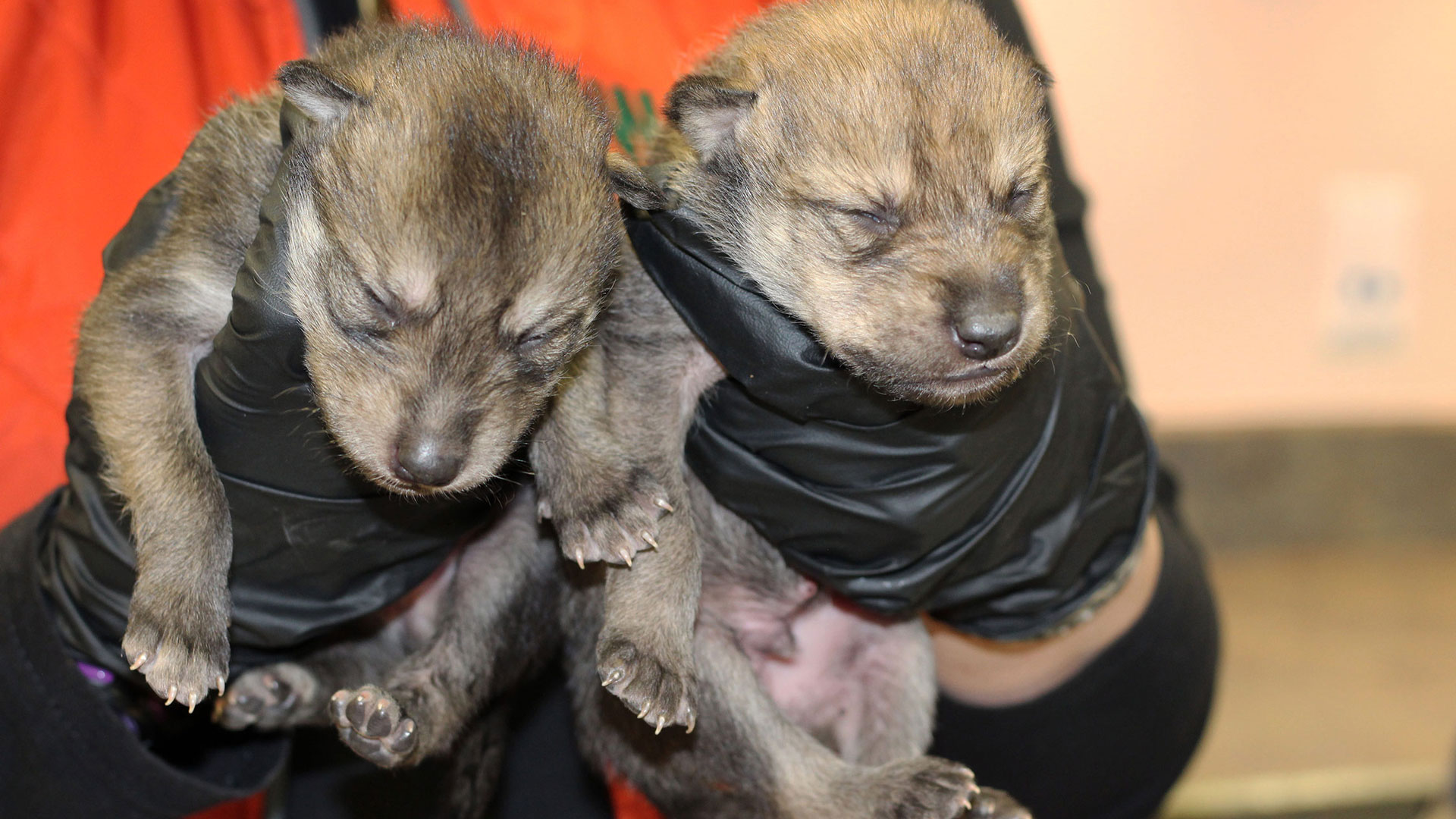 These two Mexican gray wolf pups and siblings were born at the Wolf Conservation Center in New York. They are considered "neonatal" and less than 14 days old.
These two Mexican gray wolf pups and siblings were born at the Wolf Conservation Center in New York. They are considered "neonatal" and less than 14 days old.
State and federal wildlife officials are under fire by conservation groups for removing the Mañada del Arroyo Mexican wolf pack from its den in southeastern Arizona last week.
The decision stemmed from several confirmed cases of wolves hunting nearby livestock, said Jim deVos, Mexican wolf coordinator with the Arizona Game and Fish Department.
He said the reports started in February, and were confirmed by the U.S. Department of Agriculture Wildlife Services.
In response to the attacks on livestock, the Arizona Game and Fish Department sent out range-riders to deter the wolves from killing cattle in hopes of convincing them to hunt native prey.
“We’re right in the heart of a devastating drought and so the amount of prey that was available was reduced,” deVos said.
Agencies believed that the frequency would continue and therefore elected to remove the animals.
Wildlife officials believed that the adult female wolf named Llave, had given birth to pups.
“Pre-dawn on the 27th [the] crew went in, they were able to pull two pups out of the den,” deVos said. “The female was caught next, the male was caught next.”
Two veterinarians on site had determined that the pups were underweight and less active than anticipated.
A third pup was detected in the den but determined to be in poor condition and was euthanized inside of the den.
“All of the animals were successfully transferred and are now under care in a captive facility that is part of the SAFE (Saving Animals From Extinction) Program,” deVos said.
The facility is located in New Mexico.
“The idea is not to have those wolves in captivity forever but at some point in time find a suitable release site for them to be released,” deVos said.
Despite conservation groups criticizing officials for removing the pack during the denning season, deVos said the decision was made in the pack’s best interest.
“Wolves are not gone forever from the landscape, but they’re in a situation where we believe that we’re better able to care for them now and at some point of time return them to the wild,” he said.
Conservation groups allege that the reports of depredations were inflated and made due to anti-wolf fear mongering and a lack of effort on behalf of livestock ranchers to coexist with the native endangered species.
"Removing wolves from an area so critical for connecting U.S. and Mexican populations is an assault on their recovering," said Taylor McKinnon, the Southwest director with the Center for Biological Diversity in a press release.
Llave crossed the border in 2022, with a former mate who was later killed.
After wandering, wildlife agencies caught her and paired her with a male named Wonder in captivity and released them back into the wild in the Peloncillo Mountains in Cochise County.

By submitting your comments, you hereby give AZPM the right to post your comments and potentially use them in any other form of media operated by this institution.